This article has been written to provide some general but very valuable information for those seeking to join the hobby of Historical European martial arts. Some of this advice could seem silly but I have a good deal of experience with the type of individual who is most likely to get involved with a HEMA club — it’s someone who wants to fight with swords in the 21st century, many hundreds of years after swords became a battlefield obsolete weapon and in a world where it’s generally illegal to carry a large bladed object around strapped to your belt.
Now this guide may come across as having a condescending tone to some people, but it really is not intended to be. This post is intended to be blunt, because brutal directness and honesty is the only way to keep your attention on a topic like this. I need to get a few very important things across to you so that you don’t make a big mistake at the one club you might be able to study HEMA within a a few hours drive of your home, and then get shunned by it for saying or doing the ‘wrong’ thing.
9 out of 10 people interested in HEMA are nerdy individuals who may have some issues socially interacting with others, and may be used to certain social norms in other nerdy communities that are not appropriate in many HEMA clubs.
I totally made that statistic up right now, but nevertheless it is probably true. And so are these guidelines I am providing you.
Guideline #1: Try not to act like a weebo
As most of the people who are interested in learning how to fight with a sword are nerdy individuals with a passion for popular fantasy media it’s not unheard of for a few individuals to want to try to do something they have seen in a film or a video game in real life.
It is unwise. The rule of cool generally doesn’t apply in real-life and attempting to do dragon twisters and other similar fantasy techniques makes you come across like a mall ninja. And nobody likes a mall ninja.

There are also some beginners who constantly want to try to experiment with coming up with their own ‘unique’ techniques, for various stated reasons. You will learn much faster if you instead focus on gaining mastery over the principles which the source material teaches and then, at a much later date once you have developed sufficient skill, look to find novel ways to apply these principles you have learned. Your first few sessions of class are not the time to develop your own personal trademark move.
This is important to understand. Everybody in HEMA is a nerd. Everybody.
If a fantasy TV show or film exists and it has swords in it, we’ve probably all watched it. If it is a video game we’ve at least heard of it. Joining the HEMA community will be an excellent way for you to form new friendships with others who share your passions and interests. But a HEMA club is not a cosplay convention or a SCA roleplay, so the kind of shenanigans you might be used to in that environment is generally not appropriate for a martial arts training hall. People still have fun and have a laugh, but it’s done with a higher degree of seriousness as we’re using weapons that can seriously hurt someone. Don’t be so careless that you accidentally injure someone because you were so focused on clowning around that you became a safety hazard.
On this note, many clubs try to create an environment where there is a clear separation between re-enactment, roleplaying and HEMA. While there are some clubs that encourage members to personalize their gear to look more “historically accurate” (or rather, fantasy inspired) there is a general consensus that many HEMAists want the hobby to be taken seriously by the general public as a martial art and sport, and not to be confused with reenactments. There are a number of former roleplay members involved in the HEMA space and some of them specifically left groups such as SCA because they wanted to do something more sporty. They can get touchy about people trying to bring fantasy cosplay and other silliness into their gyms.
So, you probably won’t be kicked out of your club if you paint your fencing mask with Spider-Man’s face on it, but you might get labeled by others as being ‘that person’.
Which brings us to………
Guideline #2: Don’t be ‘that person’.
You know exactly what I am talking about. Don’t pretend that you don’t.
Everyone knows ‘that person’. Back when you were in school as a child this person was the kid who constantly had his hand up asking the teacher question after question after question – and often these questions only had a superficial relationship to whatever the teacher was actually trying to teach at the time and which no one could learn because the teacher got side-tracked down ‘that person’s’ rabbit hole of questions, and as the teacher goes down that road the entire class became lost.
‘That person’ isn’t usually asking a real question intended to help better understand the material. Instead their goal is most often to be the teacher’s pet in order to gain attention by feigning participation in the class, or trying to give the incorrect perception that they are a very intelligent and creative person who can think outside the box. And in so doing they bring learning to a screeching halt for the rest of the class and the teacher sometimes forgets what they were trying to teach in the first place.
‘That person’ nearly always is someone who is having difficulty in the class because instead of paying attention to what is being taught they are day dreaming about the next question they want to ask the teacher.
It is completely normal and acceptable for someone to ask questions, but make sure your questions are productive for the whole class. If your teacher is trying to teach you one of Meyer’s plays now is not the time to muse about “what if I do this?” or ask superficial questions about whether you think Meyer stood this way because he might have been bow-legged. Just focus on the here and now, and keep your mind empty of anything that will distract you from learning what is specifically being taught. If you’d like to speculate on things like this it’s best to ask the teacher later on a break or after class.
You should of course consider sincere questions that help you personally understand things as being beneficial to the class as you will need to drill with others so you need to understand what you are doing. I am specifically talking about disingenuous questions that are designed to make you appear one way and not because it really contributes to the class.
On this note it is a good idea to avoid engaging in political non-HEMA related debates and discussions with other members of your club. We unfortunately live in a time where many people are completely unable to engage in civil constructive discourse about politics and social issues. We live in a time where some people mistakenly believe they need to be champions for their political beliefs in every thing they do however the majority of people do not want to be preached about politics during their leisure. Historical fencing is a hobby. Your gym is the wrong place to recruit people to your political causes and even if your club leadership allows it, this will inevitably result in gym members becoming divided and alienated from each other if these kinds of conversations are allowed to take place on a regular basis.
If you join the Facebook groups you should restrict your posting history to only that which your close friends can see. You may want to consider not becoming Facebook friends with members of your club or others in the community. There is a negative tendency among individuals to cyber stalk others looking for ‘wrongthink’ as a means to gate keep, and while these individuals do not represent the majority of those in HEMA they can cause much mischief when they have nothing better to do.
Don’t let the current toxic political environments of our time sabotage the growth of HEMA. We’re trying to revive the practice of lost martial arts. This is the only community that can do it. There are other places for you to focus your political activism efforts.
Guideline #3: Please bathe.
Now we’re not suggesting that HEMA is full of a bunch of sweaty nerds who never take a shower but nonetheless, everyone who is interested in getting into HEMA is nerdy.
Let’s face it; everyone in HEMA is a nerd. It is a sport and hobby that attracts people who are very interested in history and in playing around with swords. That is a very nerdy thing these days.
We also have to accept the following; living a sedentary lifestyle is fairly common among nerds and this can often lead to poor hygiene practices such as not regularly having a bath or a shower. Anyone who has ever attended a large gathering of nerds, such as at specialty conventions, knows this is true. This is why this guideline is mentioned here.
Many people who have an interest in HEMA have no prior experience with the martial arts, and often not much experience with sports, either. Geeky people are often lured by the prospect of learning how to truly use a sword because a sword is a symbol of power — and people who are a little marginalized, like geeks, want to feel powerful. We get it and we understand.
Among geeky individuals common social norms such as gym etiquette and certain sanitary practices can be new to them, and it may not be obvious that they should probably take a shower and brush their teeth and/or eat a mint before coming into a gym to stand in close proximity (and often do grappling drills) with other people. It can be embarrassing to get told by others that you are the stinky person and we want you to avoid that, because if you get embarrassed you may give up on HEMA prematurely. That’s why this reminder to do so is here.
The need to bathe regularly is especially true if you are living in North America, where most people bathe several times a day and the usage of deodorant is widespread, so most people notice the smell of human body odor very easily. In some parts of the world it can be less common for people to bathe as often so people don’t notice the smell as much but this advice still applies because working out in our equipment will get you very sweaty and that will build up into a bad odor.
If you have a job that gets you sweaty during the day before practice try to take a shower or bath before you go to class, and definitely take one after. Brush your teeth, or at least use a mint, too. The commercials aren’t wrong; Mentos really will make you more popular.
Guideline #4: Most people have the best of intentions
It can sometimes be difficult to get constructive feedback from someone else, or told you are doing something entirely wrong. Sometimes a person may have the best of intentions in giving you this feedback because they want to help you improve but may not necessarily deliver this advice in a way that is most likely to get you to listen. We’re a community of nerdy people and it’s not uncommon for some of us to have poor social skills.
In my experience generally speaking a person giving constructive feedback is genuinely trying to help. It’s best to remember that before becoming defensive.
Again, all of us are nerds passionate about swords. There is really no other reason why anyone gets involved in HEMA. Many of us take it very seriously and we want others to excel so that this hobby becomes respected as a legitimate sport by the general public. Most of the time someone gives critical feedback it’s because they assume you want to get better and they are trying to help you.
HEMA isn’t an Asian martial art, but some of the philosophies of Asian cultures are extremely applicable to the study of anything. There is a concept in Zen Buddhism called ’emptying your cup’ or ‘having a beginner’s mind’. When learning anything new or putting yourself into a position where you wish to learn something new, you must mentally prepare yourself to be able to learn. This means being willing to let go of preconceived ideas and allow yourself to do something in a way that is instructed, even if it is different than what you are used to doing. And being willing to be bad at doing things in a way that you are not used to until you can get better.
It’s not so much that the new way is better than what you might already be doing, but that if you are going to learn anything useful at all you must first learn what it is that someone is trying to teach you. So if you come into a hobby like HEMA already with experience in something similar roleplaying, SCA, Kendo, contemporary sport fencing, etc. — whatever it is, you must be willing to let go of those preconceived ideas when you join someone else’s club and ask them to instruct you.
HEMA is a small community but there are nuisances between the way one instructor teaches a common technique and the way that another might do so. If you’re going to learn these differences you have to be willing to empty your cup of whatever you have learned before and try to fill it with what the current instructor is teaching you. It could very well be that the way you did things before was better but you won’ really be able to accurately assess that if you don’t first try the other way. You also will find it difficult to get much instruction from a teacher if you reject their lessons, and if you’re going to pay someone to teach you something you may as well actually try to learn it.
Now if you are the type of person who really cannot handle being told that you have made a mistake and could be doing something incorrectly, because you are a massive perfectionist and it hurts your pride, let me tell you a secret. This might actually change your life.
The big secret to learning how to do something *perfectly* as fast as possible is to fail at doing it as fast as you can. Now this might seem counter-intuitive but let me explain. In entrepreneurship we call this concept ‘fail-fast, learn-fast’. This is a philosophy where the best way to figure out the right way to do something is to eliminate all the ways that you could do it wrong, so that after you have recognized all the wrong ways you will figure out the correct way. This abandonment of all the wrong ways by failing at them while seeking the right way is called ‘pivoting’.
This might sound like just a business thing, but it’s really not. The act of fencing itself combined with the proper mental attitude will create a feedback loop that will help you figure out the best ways to react to any kind of attack another person attempts at you. After experiencing enough failures to defend yourself from an attack you will inevitably develop the ability to correctly anticipate and predict what an opponent will do based on your prior experience with failing to recognize a previous attack. So the secret to getting good at fencing is to fail as fast as possible while trying to do your best. You should never get upset or frustrated at yourself for not being perfect nor at others for pointing out your flaws, because the only way you can get better is by failing. Failing to defend against every kind of attack will allow you to eventually arrive at the correct response to every kind of attack.
So, keep in mind people usually want to give you useful constructive feedback even if it might hurt your pride and the best way to handle that is to take a deep breath, empty your cup and try again. Do this over and over and over, and eventually you will become skilled.
Guideline #5 : Even the best of people don’t always have the best of intentions.
We’re all human. Sometimes people can be petty and dumb.
Like with any community there is always that minority of individuals who seemingly possess a histrionic personality disorder and will create drama by finding mountains in mole holes. Unfortunately these types of individuals are probably a tad more common within HEMA than in other kinds of sports because we’re the only sport that attracts nerdy people — and as we all know nerdy individuals may not always have the best of social skills. Sometimes it is due to obliviousness, but occasionally it is due to less than desirable personality traits which the individual has developed and never tried to address.
(And if you found yourself strongly disagreeing with me when I said ‘HEMA is the only sport that attracts nerdy people’, and you started mentally listing other sports like chess, e-sports and whatever else, and you found yourself having a hard time finishing the previous paragraph to read this one because you were so *fixated* on the mistaken statement I made that you missed the entire point I was trying to make, congratulations. You might have a tendency to be ‘that person’ and you just did not realize it until now. This is your opportunity to work on that and improve. Stop being so pedantic about everything and listen to the messages people are trying to communicate to you without nitpicking over minute details.)
We have all encountered ‘that person’ in the past. They may not be a completely awful person. They might be a long time member of the gym who has an enormous amount of knowledge and experience, and somewhere along the way their passion for HEMA transitioned from being the eager student to deciding they must be the “old guard” at the door preventing the unworthy from entering.
Regardless this individual is just a rather selfish person who is so focused on themselves that they cannot see beyond their own nose, and it can lead them to, in their effort to be the center of attention, convince themselves they have a right to be an ass.
It is usually an exercise in futility to try to be reasonable with such individuals because they aren’t being reasonable in the first place. No matter how logical or well constructed your explanations may be they will reply back with emotional and poorly reasoned defenses to justify their behavior and conduct. They may even feign being a victim when they are the victimizer as a means of recruiting others to help them further harass.
How much of a real problem this type of person becomes in a club environment and when enough is enough is something each club’s management has to decide for themselves. The reason I bring this up is two-fold;
Firstly, try not to be ‘that person’. Joining a HEMA club is a great opportunity to improve your social skills and try to work on improving your worst habits.
Secondly when you do encounter ‘that person’ who is obviously bringing deconstructive energy into the gym and distracting others from their training, try not to engage with them more than is necessary as part of the class. Getting into a big argument with them just feeds this type of person with the kind of negative attention they are seeking. If they falsely accuse you of things, calmly explain yourself and then move on. Don’t get sucked into a debate.
If you really cannot ignore their behavior it will be more effective to calmly speak with the instructor about your concerns and let them address it. Unless your instructor is ‘that person’, in which case you need to just find another club. An instructor being the most toxic person in a club has unfortunately been known to happen within the martial arts community and HEMA is no exception.
On that note there have appeared individuals within HEMA who portray themselves as a kind of guru or life coach who possesses secret knowledge, dispensing advice that may be questionable. While the martial arts certainly lends itself well to serving a vehicle by which philosophy can be transmitted and many of the aspects of studying a martial art lend themselves well to developing non-martial life skills you should question what motivations an individual has in portraying themselves as a life coach. The formation of a personality cult is not unknown within the martial arts community and some individuals in HEMA are accused of having done so already.
Guideline #6: The online HEMA community is often a kind of meritocracy, but it isn’t everything.
Historical European martial arts has largely spread due to online discussion groups, historically on bulletin boards but as of late on Facebook groups and chat rooms.
This has over time allowed for people living geographically all over the world to share information and work together to uncover the lost arts. On the flip side of things it has also led to a somewhat insular element to the community. Some might use the word “non-inclusive” but we think that term is thrown around a’bit too carelessly.
Rather we would say the community has become an informal meritocracy revolving around a number of individuals with big personalities who have contributed greatly to the spread of HEMA over the years. Generally speaking the currency to gain merit in the online HEMA community is in two things; knowledge and skill.
- Merit by knowledge can be obtained by demonstrating learning in this esoteric and extremely nerdy subject of medieval and renaissance. It is also gained by sharing tips or tricks that will assist others in their own learning about this subject.
- Merit by skill is obtained in one of two ways; either by becoming a teacher of this esoteric knowledge or by performing well in events such as tournaments. It is also to a lesser extent gained by hosting events or providing products that others perceive as assisting in their own obtainment of skill so one might consider this merit based on skill as a tournament organizer or craftsman.
While meritocracies are generally useful social structures for encouraging constructive participation that grows the group, an informal meritocracy where the standards for obtaining merit are unclear and there is no regulation has a tendency to result in warping as individuals appear who feel they cannot gain merit by earning it in knowledge or skill, so they seek to instead detract from the merit others have earned in order to lift themselves up while making no useful contributions of their own. This is often done by attacking an individual on matters entirely unrelated to HEMA such as differences of personal politics and virtue signaling based on these differences.
This has also led to an element of defensiveness of certain individuals who feel threatened by newcomers to the community who they may perceive as able to steal their thunder, which leads to gatekeeping. It’s also led to a highly competitive social environment where things irrelevant to HEMA (such as personal disputes) are used to justify crusades to rally the community to shun individuals who are perceived as threatening the power of another, often based on claims that are difficult / impossible for anyone else not a direct witness to the events to verify the authenticity of.
Many individuals won’t agree with this interpretation of what has happened to the online HEMA community but this is how we see things. Admittedly part of the reason we created this website is because we wanted to do something to make it easier for new people to obtain the necessary amount of information needed to gain merit within the community and be accepted easier.
Taking all of this into consideration along with the other recommendations we have made earlier in this post we would encourage you to try to avoid discussing politics with much of anyone at your club and certainly online. Unfortunately the current state of the online HEMA community struggles to create an environment where people can freely speak their minds without becoming ostracized by others and this is unlikely to change until a different culture is developed that can permit for this kind of discussion. We’re hoping to build this kind of culture at our own forums, which you can visit and register at here.
What we do suggest is studying everything you possibly can related to your interest within HEMA. Don’t try to be a master of every conceivable subject and it is okay to take notes on things and not need to memorize everything. This website was built off our own notes on things — there is so much to HEMA who can possibly recall it all? In constructing a website such as this we’ve had the benefit to sit down with our notes and edit our articles to make them sharp and concise and as accurate as possible. Most people cannot perfectly recall all this detailed knowledge from memory so don’t expect yourself to have to do that every time you go to a class either.
What you should do is focus on getting a grasp of the information and being aware of it, and over time things will sink in. Don’t be so concerned about the informal meritocracy structures at work in the online community, and don’t get sucked into the kind of competitions between posters that can occur unless it serves a purpose to your studies. Debate can be an excellent way to discover truth as knowledge becomes pooled together — it is a staple of the dialectical method and there is even value in playing the devil’s advocate with people at times in service of discovering that truth– but as stated before there are individuals who are very defensive about their levels of merit obtained within the community and cannot deal with criticism very well. It’s something to be aware of.
The most important thing is to have a group of individuals in the real world to regularly train with, who you get along with and can work together to enjoy the hobby of historical sword fencing. Online discussions should be supplementary to your social life and not the whole of it. Therefore we recommend you use our Club Finder map to locate the nearest club to you, if possible.
As a reminder we have our own forums for this website which you are welcome to join by clicking here. Perhaps we can try to create a different kind of culture here.
Guideline #7: Try to have fun.
That’s why you’re training, right? To have fun? Don’t forget that.
If HEMA stops being fun then try to figure out why it stopped being enjoyable and if you can make it fun again by changing some things. If you can’t then it may be time to move on. You’re not a loser or a quitter if you just stop having fun.
Don’t wrap your entire identity up into HEMA and lose sight of what is important.
Like joining any new community HEMA has the possibility to greatly expand the enjoyment of your life and teach you valuable lessons. I hope you don’t get tripped up in your first interactions with people, and can leave behind some of the parts of yourself that are less than knightly.
****
If you’d like to learn more information about historical fencing practices please check out our Learn HEMA page for a guide to learning about the historical weapon that interests you. You can also find more guides we’ve written about other topics at our Helpful Guides page.
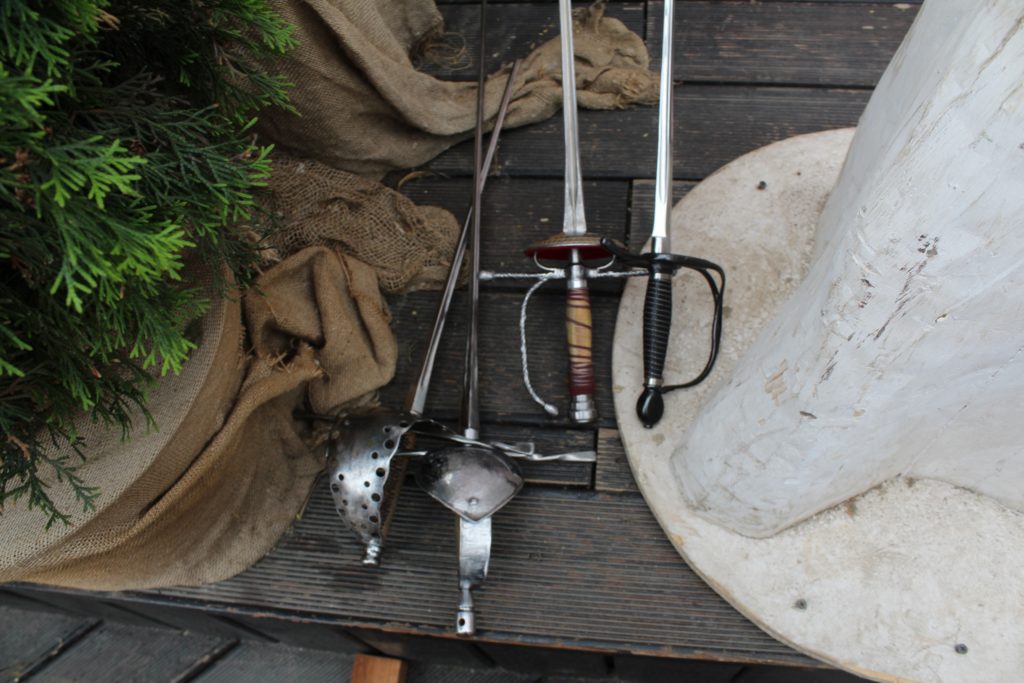
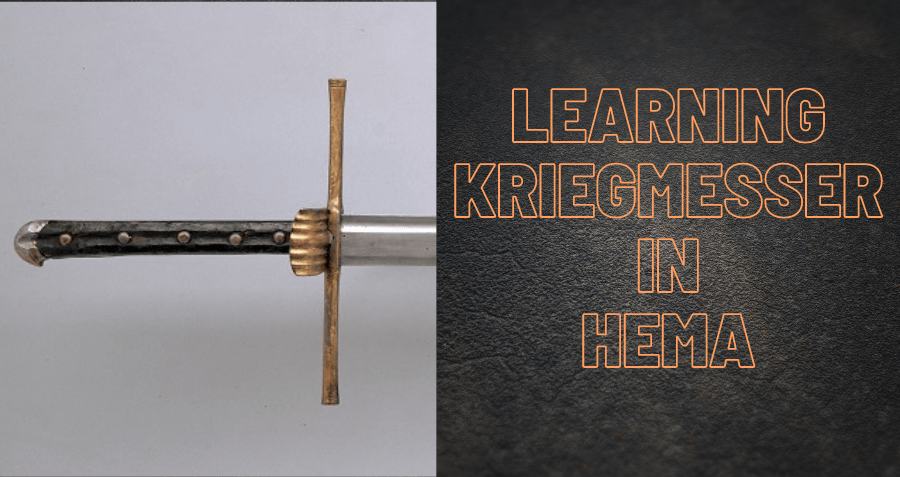

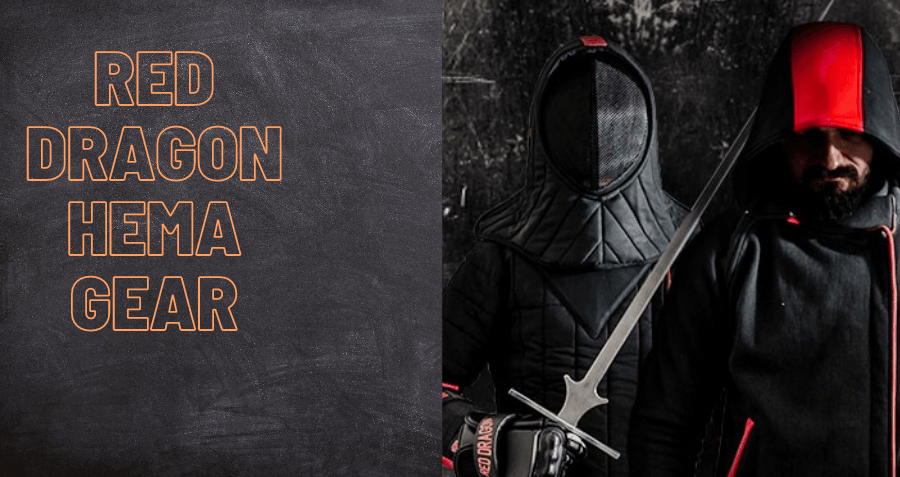



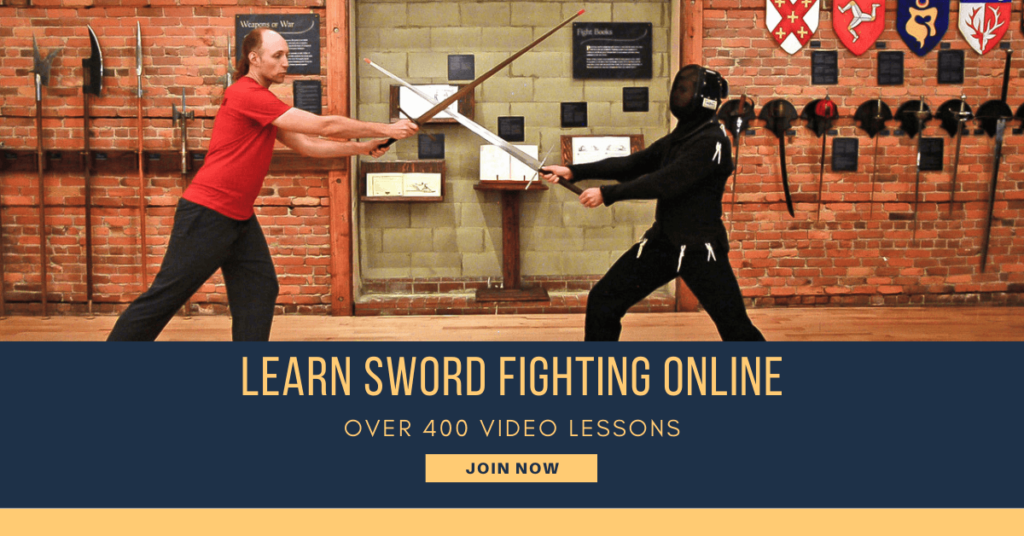





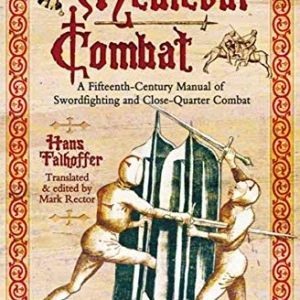
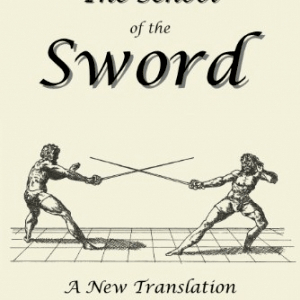



2 Responses
Don’t you think preaching about meritocracies is a bit lame and narcisssistic? Writing long, unhinged, nasty articles putting down noobs is a surefire way of destroying any merit, whether skill-based or otherwise.